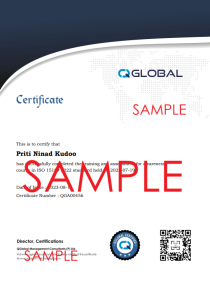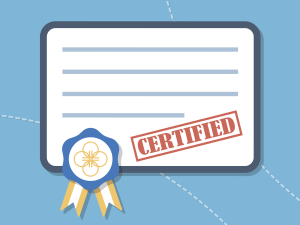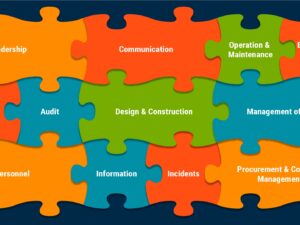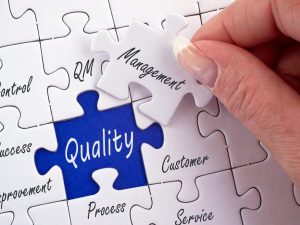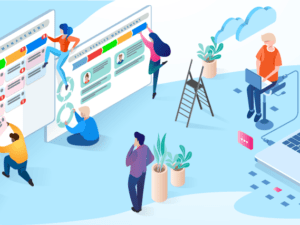API Q2 Second edition - Internal Auditor Course
- Description
- Curriculum

API Spec Q2 is the first international quality management system (QMS) standard for service exploration and production service providers servicing the oil and gas industry. The industry-written specification applies to critical activities such as well construction, intervention, production, abandonment, well servicing, equipment repair and maintenance, and inspection activities. API SPEC Q2 internal auditor course will help you learn how to initiate an audit, prepare and conduct audit activities, compile and distribute audit reports and complete follow-up activities. On successful completion of this course, you will be able to optimize your auditing skills with the internationally recognized API SPEC Q2 standard and boost your audit capabilities. Also gain confidence in planning and performing an effective audit, as well as reporting and taking corrective action where necessary. API SPEC Q2 internal auditor training course develops the necessary skills to assess and report on the conformance and implementation of processes based on API SPEC Q2 standard.
Who Should Attend?
- Anyone involved in the planning, implementing, maintaining, supervising or auditing of an API SPEC Q2 quality management system
- Those who like to handle the role of an API SPEC Q2 internal auditor in an organisation
- Employees of any organisation who wish to audit their organisation’s quality management system
- Those involved in second party audits such as vendor audits
- Personnel who wish to pursue career as an API SPEC Q2 internal auditor
- Expert advisors in quality management
Key Benefits
- Gain the skills to plan, conduct, report and follow up first and second party audits in accordance with ISO 19011 standard
- Learn skills to lead an internal audit team
- Identify the aims and benefits of an API SPEC Q2 audit
- Interpret API SPEC Q2 requirements for audit application
- Grasp the application of risk-based thinking, leadership and process management
- Acknowledge the correlation between API SPEC Q2 standards and other standards and regulatory frameworks
- Learn the latest techniques in API SPEC Q2 internal auditing
- Consolidate your expertise with the latest developments and contribute to the continuous improvement of the business
- Fill gaps in your professional knowledge
Learning & Evaluation Method
This is a live and interactive course. Once you purchase the course, our team will contact you to plan the training. No matter where you are located, we schedule the classes based on your convenience and time zone. You can plan to attend the training in sessions of 4 or 8 hr duration, based on how much time you can spend in a day.
Certification
There are increasing numbers of organizations, who prefer candidates those who have completed management system trainings from a recognized institution. Certification demonstrates your commitment to superior professionalism, upholding industry standards, and continued learning. These merits can help boost your professional credibility and prestige within your own network, in your organisation, with your current clients, and when pursuing new business opportunities. After the successful completion of the course and final exam, you will be awarded with a certificate of completion issued by QGlobal. Your credentials will be made available in the global online directory and can be verified by anyone searching with the certificate number. Without doubt we can say that our training courses are well recognized and sought after by organizations across various geographies.
Buy for group Are you planning to buy this course for a group? We have the best prices for you! Select ‘Buy for Group’ option and add to the cart. You will get a discount of 60 – 75% for a group of up to 10 participants. To make a group purchase, create your group name and add individual emails of up to 10 participants. Each participant will get the access to the course materials, exam and the certificate. We will arrange one live-online session for the entire group.
Total: 209 Courses View all
Total: 209 Courses View all
-
1Introduction to standards and certification
- Purpose of standardization
- Benefits of certification
-
2Introduction to SPEC Q2 standards
Application areas
Terms and definitions
Quality management principles
Process based approach
Plan-Do-Check-Act cycle
Risk based thinking
Benefits of certification
Certification process flow
-
3Terms and definitions
- Terms related to person or people
- Terms related to organization
- Terms related to activity
- Terms related to process
- Terms related to system
- Terms related to requirement
- Terms related to result
- Terms related to data, information and document
- Terms related to customer
- Terms related to characteristic
- Terms related to determination
- Terms related to action
- Terms related to audit
-
4SPEC Q2 Requirements
4 Quality Management System Requirements
4.1 General
4.2 Management responsibility
4.3 Organisation capability
44 Documentation requirements
4.5 Control of records
-
5SPEC Q2 Realization of Service and Service-related Product
5 Realization of Service and Service-related Product
5.1 Contract review
5.2. Planning
5.3. Risk assessment and management
5.4. Design and development
5.5. Contingency planning
5.6. Purchasing
5.7. Execution of service
5.8. Control of testing, measuring, monitoring and detection equipment (TMMDE)
5.9. Service Performance Validation
5.10. Control of non-conformities
5.11. Management of change
-
6SPEC Q2 Quality Management System Measurement, Analysis, and Improvement
6 Quality management system measurement, analysis, and improvement
6.1 General
6.2 Monitoring, measuring and improving
6.3 Analysis of data
6.4 Improvement
6.5 Management review
-
7Introduction to ISO 19011 2018 Guidelines for auditing management systems
- Scope
- Normative references
- Terms and definitions
-
8ISO 19011 Principles of auditing
-
9ISO 19011 Conducting an audit
- Initiating audit
- Establishing contact with auditee
- Determining feasibility of audit
- Preparing audit activities
- Performing review of documented information
- Audit planning
- Assigning work to audit team
- Preparing documented information for audit
- Conducting audit activities
- Assigning roles and responsibilities of guides and observers
- Conducting opening meeting
- Communicating during audit
- Audit information availability and access
- Reviewing documented information while conducting audit
- Collecting and verifying information
- Generating audit findings
- Determining audit conclusions
- Conducting closing meeting
- Preparing and distributing audit report
- Preparing audit report
- Distributing audit report
- Completing audit
- Conducting audit follow-up
-
10ISO 19011 Competence and evaluation of auditors
- Determining auditor competence
- Personal behavior
- Knowledge and skills
- Achieving auditor competence
- Achieving audit team leader competence
- Establishing auditor evaluation criteria
- Selecting appropriate auditor evaluation method
- Conducting auditor evaluation
- Maintaining and improving auditor competence
-
11ISO 19011 Managing an audit program
- Establishing audit programme objectives
- Determining and evaluating audit programme risks and opportunities
- Establishing the audit programme
- Roles and responsibilities of the individual(s) managing the audit programme
- Competence of individual(s) managing audit programme
- Establishing extent of audit programme
- Determining audit programme resources
- Implementing audit programme
- Defining the objectives, scope and criteria for an individual audit
- Selecting and determining audit methods
- Selecting audit team members
- Assigning responsibility for an individual audit to the audit team leader
- Managing audit programme results
- Managing and maintaining audit programme records
- Monitoring audit programme
- Reviewing and improving audit programme

